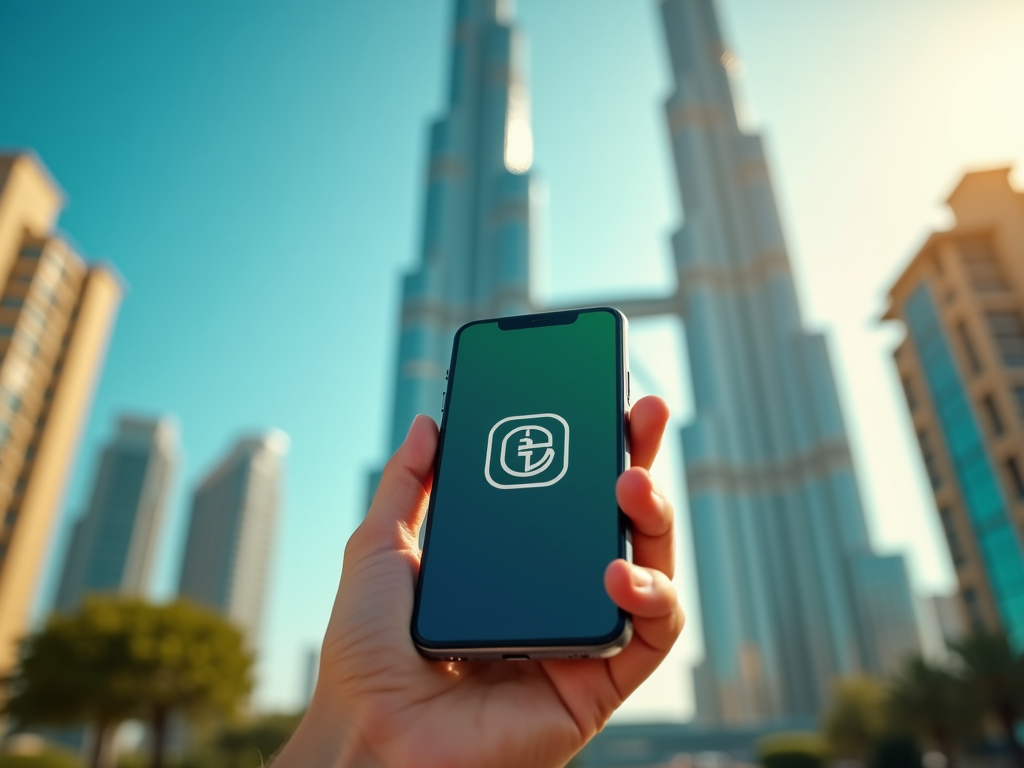In recent years, Dubai has established itself as a leading hub for cryptocurrency and blockchain businesses. The emirate’s strategic location, progressive regulations, and a robust technological infrastructure have attracted both startups and established companies in the crypto space. This article delves into the various factors that contributed to Dubai’s rise as a hub, the initiatives taken by the government, and its future as a global leader in cryptocurrency and blockchain technology.
The Regulatory Framework Supporting Blockchain Innovation

One of the pivotal reasons that have enabled Dubai to flourish in the crypto industry is its welcoming regulatory framework. Unlike various regions that impose restrictive regulations, Dubai has embraced cryptocurrency as a viable component of the economy. The Dubai Multi Commodities Centre (DMCC) has launched a crypto license, allowing businesses to operate within a legal framework that fosters innovation. This strategic move offers startups the assurance that they can conduct their operations without the fear of abrupt regulatory changes. Furthermore, the Dubai Financial Services Authority (DFSA) has implemented specific regulations that govern digital assets, enhancing the region’s appeal to international crypto companies. The blend of progressive laws and the support from local authorities has made it easier for businesses to establish themselves in the emirate.
Investment in Technology and Infrastructure

Dubai’s commitment to technology and infrastructure is another crucial factor fostering the growth of cryptocurrency and blockchain businesses. The emirate consistently invests in state-of-the-art technology, ensuring that companies have access to the necessary tools for innovation. The Dubai Blockchain Strategy, initiated by Crown Prince Sheikh Hamdan bin Mohammed bin Rashid Al Maktoum, aims to transform Dubai into the first city fully powered by blockchain by 2025. This initiative aims to offer efficient governmental services and secure private transactions, making the application of blockchain technology ubiquitous across various sectors. Furthermore, the presence of tech parks and incubators provides a conducive environment for startups to collaborate, scale, and access resources critical for their growth.
Business Ecosystem and Networking Opportunities
The business ecosystem in Dubai is thriving, benefiting cryptocurrency and blockchain companies significantly. The city hosts numerous networking events, conferences, and workshops that attract industry experts, investors, and entrepreneurs. Events such as the annual Middle East Blockchain Expo enable businesses to showcase their innovations while connecting with potential partners and clients. Additionally, celebrity investors and thought leaders frequently attend these events, heightening the emirate’s visibility in the global fintech industry. The sense of community among startups and established companies encourages knowledge share and collaboration, which in turn accelerates growth and adoption of blockchain solutions.
The Dubai government has actively promoted blockchain technology through a series of initiatives and support programs aimed at fostering entrepreneurship. The Dubai Future Foundation has led this charge by introducing programs like the Dubai Future Accelerators, which invites innovators to propose solutions across various sectors using blockchain technology. Additionally, the UAE government has allocated substantial funds to support fintech initiatives, providing resources and mentorship for blockchain startups. This proactive approach not only draws entrepreneurs to the city but also contributes to a vibrant ecosystem where innovation can thrive. The result is a flourishing marketplace for blockchain and cryptocurrency applications across industries, from finance to logistics.
Conclusion
In conclusion, Dubai has established itself as a global leader in the cryptocurrency and blockchain sectors by combining a supportive regulatory environment, robust technology investment, an energetic business ecosystem, and proactive government initiatives. These factors create an unparalleled foundation for current and future businesses in the crypto space. As the world of digital currencies continues to evolve, Dubai is set to remain a key player, attracting technology companies and investors keen to capitalize on the potential of blockchain technology. The emirate serves as a blueprint for other regions aspiring to become crypto hubs, showcasing the value of flexibility, support, and innovation in nurturing a thriving ecosystem.
Frequently Asked Questions
1. What makes Dubai suitable for cryptocurrency businesses?
Dubai’s strategic location, favorable regulatory framework, investment in technology, and support from the government are key factors making it suitable for cryptocurrency businesses.
2. How has the Dubai government supported blockchain initiatives?
The government has launched several initiatives and support programs, such as the Dubai Blockchain Strategy and Dubai Future Accelerators, aimed at fostering blockchain innovation and entrepreneurship.
3. What are the regulatory bodies involved in overseeing cryptocurrency in Dubai?
The Dubai Multi Commodities Centre (DMCC) and the Dubai Financial Services Authority (DFSA) are primary regulatory bodies governing cryptocurrency operations in the emirate.
4. Are there networking opportunities for cryptocurrency entrepreneurs in Dubai?
Yes, Dubai hosts numerous networking events, conferences, and workshops, such as the Middle East Blockchain Expo, which create valuable connections among entrepreneurs, investors, and industry experts.
5. What role does technology play in Dubai’s blockchain strategy?
Technology is central to Dubai’s blockchain strategy, which aims to make the city the first fully blockchain-powered city by 2025, enhancing efficiency in governmental services and private transactions.


